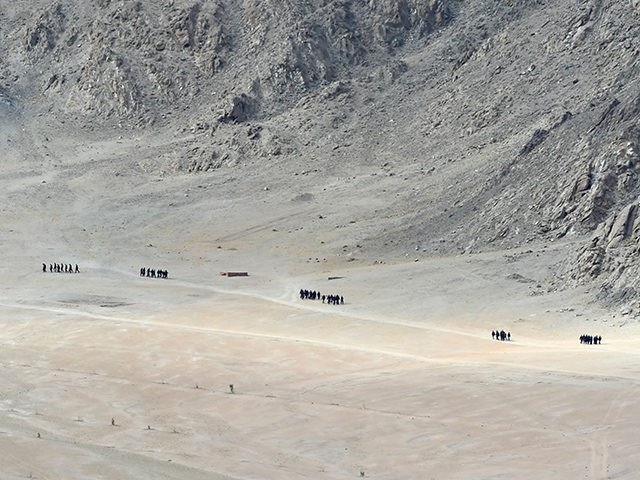A Tibetan commander in India’s Special Frontier Force (SFF) was killed with another ethnic Tibetan soldier wounded on Saturday in a border clash with China in the Western Himalayan Indian territory of Ladakh, Tibetan officials said.
The governments of India and China accused each other’s militaries on Monday of making provocative maneuvers along their disputed Himalayan border over the weekend, but neither country provided details of exactly what transpired.
Tsetan Wangchuk, the director of the Sonam Ling Tibetan settlement in Ladakh, told Radio Free Asia (RFA) on Tuesday that a Tibetan company commander was killed in a border “confrontation” between India and China on Saturday.
“Nyima Tenzin from the [Indian] Special Frontier Force has died from this confrontation and another Tibetan man from the same unit has sustained serious injuries and is currently undergoing treatment at Ladakh military hospital,” he said.
According to Wangchuk, Tenzin, 59, “died in a mine blast [on] August 29, while his unit patrolled through the eastern side of the Pangong [Tso] lake area,” which is the side of the Ladakh lake that edges India’s disputed border with China, known as the Line of Actual Control (LAC).
“It was not known if he crossed the nearby Line of Actual Control,” RFA added.
Tenzin was the commander of an all-Tibetan company in the Indian army’s SFF known as the 7th battalion.
Namghyal Dolkar Lhagyari, a member of the Tibetan parliament in exile, confirmed the Tibetan commander’s death to Agence France-Presse (AFP) on Tuesday, saying that he was “martyred during the clash” along the border on Saturday night.
On Monday, India accused China of “breaking terms agreed to during previous military and diplomatic talks” on Saturday along the neighbors’ disputed border, RFA reported.
“Indian troops pre-empted this PLA [China’s People’s Liberation Army] activity on the southern bank of Pangong Tso Lake [in eastern Ladakh], undertook measures to strengthen our positions, and thwart[ed] Chinese intentions to unilaterally change facts on [the] ground,” India’s defense ministry said.
In response, a spokesman for the PLA’s Western Theater Command claimed on Monday that Indian soldiers had crossed the LAC on Saturday in a “flagrant provocation,” without providing details.
China’s foreign ministry on Wednesday denied that any Indian casualties occurred in the border confrontation over the weekend.
“On my understanding, no Indian troops died along the border,” Chinese foreign ministry spokeswoman Hua Chunying said at a press conference, referring to the “conflict on the intervening night of August 29-30,” according to India Today.
When reporters asked Hua about India’s pre-empting of a Chinese “intrusion into Pangong Tso banks on the southern side” on Saturday, she replied:
You just said that the Indian side pre-empted China’s action. In China, we have a saying about a guilty mind protesting conspicuously he’s innocent. That’s what India did. It shows that the Indian troops illegally crossed the line in provocation and unilaterally changed the status quo and broke the two sides’ agreement and consensus.
The reportedly deadly border clash on August 29 was the latest confrontation between India and China along their unmarked Himalayan boundary in recent months. On June 15, India and China engaged in their deadliest border conflict in at least 45 years. In hand-to-hand combat, Chinese and Indian border regiments fought each other in Ladakh’s Galwan Valley. The skirmish killed 20 Indian soldiers and an estimated 40 Chinese troops, though Beijing never confirmed its number of casualties.
In late July, the PLA conducted live-fire drills in the “middle section of the Himalayas.” Beijing approved the aggressive military action despite both China and India officially stating in preceding weeks that they had largely “disengaged” from their border standoff. On August 18, the PLA said it had carried out yet another live-fire drill in the Himalayas, the second such Chinese military exercise on the India-China border within the span of a month.
On August 14, Chinese Foreign Minister Wang Yi made a rare trip to Tibet, which included a visit to China’s disputed border with India. Wang was the first senior Chinese Communist Party official to visit the Tibetan Plateau, much of which borders India, since the June 15 border clash between China and India.

COMMENTS
Please let us know if you're having issues with commenting.